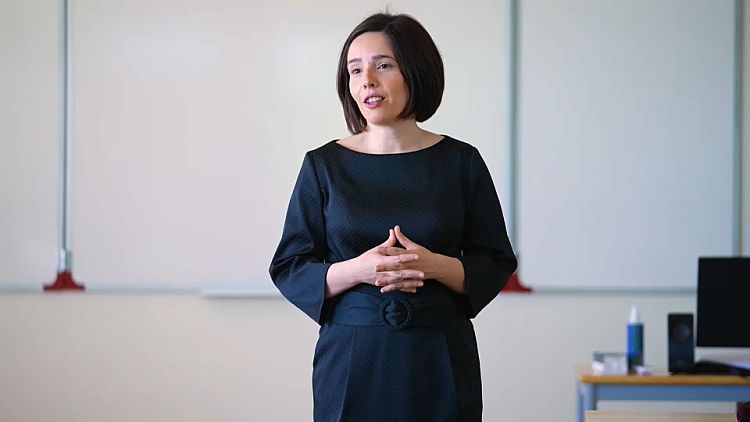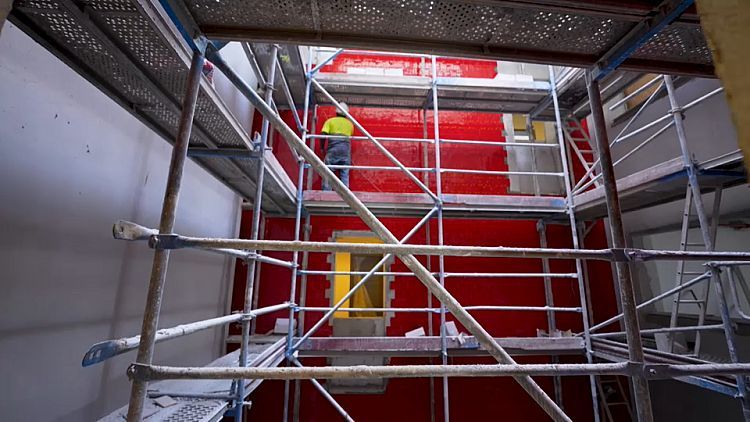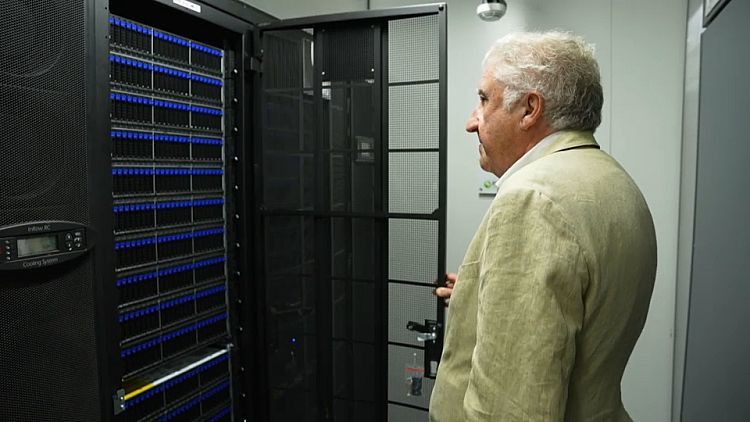
How are EU funds helping Portugal’s post-pandemic recovery?
In this episode of Real Economy, we head to Lisbon to see how the RRF financing is being used to advance this
With its long coastline, sunny weather and attractive sights, Portugal is a prime tourist destination. But following the disruption of the COVID-19 pandemic, industry experts have called attention to shortcomings in investment, training and sustainability in the sector.
Boosting Portugal's tourism sector
Catarina Nunes is the Vice-rector of Estoril Higher Institute for Tourism and Hotel Studies, and she oversees a new RRF-funded program aimed at overcoming skill shortages in Portugal's tourism industry. Speaking to Euronews, she explained that more could be done to help the sector live up to its full potential.
"In Portugal, there is still a long way to go in terms of training in the field of tourism and hospitality," Catarina explained. "There are changes that the market thus imposes: demands for innovation, improvement, sustainability, the creation of new businesses, new trends, meeting the needs of the market."
"We are part of a consortium of three higher education institutions which will receive around €6.7 million. We can provide a digital transformation for the sector, we can provide requalification, continuous improvement and training tailored to the needs of the market," she said.

An estimated 8,000 students will benefit from this investment over the course of five years.
One such student is João Aleixo, who told Euronews that, for him and others, the Recovery and Resilience Facility has opened up access to higher education.
"There is a very important opportunity that the national recovery plan is giving me, and others like me, to do a master's degree. I'm thinking of doing a master's degree linked to entrepreneurship, linked to innovation and the development of society in tourism," he explained.
Portugal's Recovery and Resilience Facility roadmap
Through the RRF, Portugal’s national recovery plan will benefit from €13.9 billion in grants and €2.7 billion in loans.
38% of the plan will support climate objectives and 22% of the plan will foster the digital transition.
The funding supports investments and reforms in areas like transport, health, and digital technologies, with special attention given to social needs, like housing, which is a major issue in Portugal.
In the area of climate and environmental policies, Portugal’s challenges include the need to make the building stock more energy-efficient, diversify energy sources and improve forest fire prevention.
As such, Portugal’s plan includes a large-scale investment programme of €300 million to improve the energy efficiency of residential buildings.
How is Portugal using the RRF money?
At the University of Lisbon, work is well underway to provide affordable housing to 900 students in need.
"Rents are very high," explained Vitor Leitão, Vice-rector of the University of Lisbon. "There is a lack of houses and rooms. Especially in Lisbon and in other big towns. So if we want to attract more students, we have to give them accommodation."
"This building is the first of a set of three buildings. In terms of funding, the EU, via this resilience and recovery plan, will fund us for about €27 million, for a total cost of around €39 million," he added.

In line with Portugal’s green objectives, these new buildings must respect energy-efficiency requirements.
While this is an important measure to mitigate greenhouse gas emissions, the country is also betting on weather forecast technologies better suited for the climate challenges ahead.
For this purpose, the Portuguese Institute of the Sea and the Atmosphere (IPMA) is set to receive €17 million of RRF investment, and it already bought a €1 million super-computer.
"This computer will allow us to multiply our calculation capacity by 20, in order to provide data faster and with better quality," said Miguel Miranda, President of IPMA.
"Portugal is one of the countries most affected by climate change. Our capacity to improve, however little it may be, the atmospheric forecast and the ocean forecast, has a huge impact on people's lives," Miguel added.

Will the RRF be enough to help sustain Portugal's recovery?
According to the European Union, the Portuguese recovery plan will boost the country’s GDP by up to 2.4% by 2026, and create some 50,000 jobs.
Euronews asked Mariana Vieira da Silva, Minister of the Presidency in the Portuguese government, if this will be enough to leave the economic effects of the pandemic behind.
"Well, of course, we think it's a good opportunity for us to recover from the crisis, but also to prepare our economy for the future. And everyone can always say that more money is better than less money. But I think the RRF was a very important program that the European Union was able to launch and that we are able to approve and then implement," she explained.

Two years on since the RRF was launched, Euronews asked Mariana Vieira da Silva what lessons have been learned, and where she believed there was still room for improvement.
"We have in countries like Portugal a strong program on the cohesion policy and now a strong program on the RRF. And those have different rules and different mechanisms of evaluation, and I think we need to coordinate them more than we are now doing because the country, the administrative capacity of each country is not unlimited. And I think these two mechanisms need more coordination," she revealed.
Research into how the RRF funding is being used across Europe reveals that Portugal has the second-highest share dedicated to social policy. But at this stage, is social policy investment a policy choice or an economic reality choice?
"Well, both, I guess," the Minister said.
"First, in Portugal, we have an inequality issue that we must address and that is one of the most important things to guarantee that the digital and the climate transition are not unfair. We, in our lifetime, have already experienced several crises: the financial one and then COVID and now the war.
"So we need to guarantee that our economy and our social tissue is resilient enough to fight crises in the future. Hopefully not, but we have to be prepared for them," Mariana Vieira da Silva concluded.











